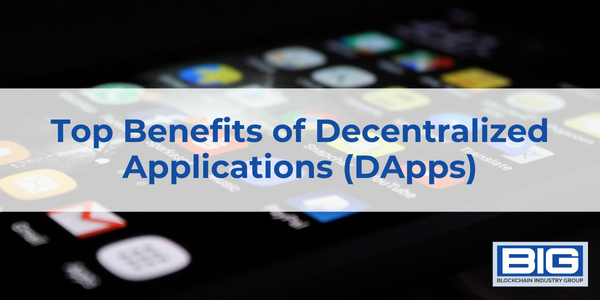
Decentralized applications (dApps) are a type of software application that is built on top of a blockchain network. They are designed to take advantage of the unique features of blockchain technology, such as decentralization, security, and transparency, in order to create new and innovative use cases.
There are many benefits to using dApps, which can be particularly appealing in situations where traditional centralized solutions are insufficient or undesirable. Some of the key benefits of dApps include:
- Decentralization: One of the key benefits of dApps is that they are decentralized, meaning that they are not controlled by any single entity or organization. This can make them more resistant to censorship, fraud, and other forms of abuse, as there is no single point of control that can be exploited.
- Security: Because dApps are built on top of a blockchain network, they can benefit from the enhanced security and immutability of the underlying technology. This can make them more resistant to hacking and other forms of cyber attack, which can be especially important in situations where data integrity is critical.
- Transparency: DApps can provide a high degree of transparency, as all transactions and data on the blockchain are visible to everyone. This can help to create a more open and transparent ecosystem that is less prone to fraud and abuse.
- Efficiency: DApps can help to improve the efficiency of various processes and operations by automating tasks and reducing the need for intermediaries. This can help to reduce costs and improve the overall user experience.
- Inclusivity: Because dApps are decentralized, they can be accessible to anyone with an internet connection. This can help to create a more inclusive ecosystem that is not limited by geography or other barriers.
There are many potential use cases for dApps, ranging from finance and banking to social networking and beyond. Some examples of dApps and their use cases include:
- Decentralized finance (DeFi) applications: These dApps allow users to access financial services, such as lending, borrowing, and trading, in a decentralized and secure manner.
- Supply chain management dApps: These dApps can help to improve the transparency and efficiency of supply chain operations by using blockchain technology to track the movement of goods from one location to another.
- Social networking dApps: These dApps can enable users to connect and interact with one another in a decentralized and secure manner.
- Voting dApps: These dApps can be used to facilitate secure and transparent voting processes, helping to ensure that elections are fair and accurate.
- Identity management dApps: These dApps can help to improve the security and privacy of personal identity information by using blockchain technology to store and manage identity data.
Block Chain vs. Blockchain
—
Blockchain 101: How Blockchain Works
—
Blockchain 101: Key Features and Benefits
In conclusion, decentralized applications (dApps) are a powerful and innovative type of software application that is built on top of a blockchain network. They are designed to take advantage of the unique features of blockchain technology, such as decentralization, security, and transparency, in order to create new and innovative use cases. There are many potential use cases for dApps, ranging from finance and banking to social networking and beyond, and there are many benefits to using dApps, including decentralization, security, transparency, efficiency, and inclusivity. As the use of dapps continues to grow and evolve, we can expect to see them playing an increasingly important role in shaping the future of this exciting and transformative technology.



